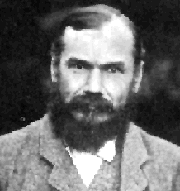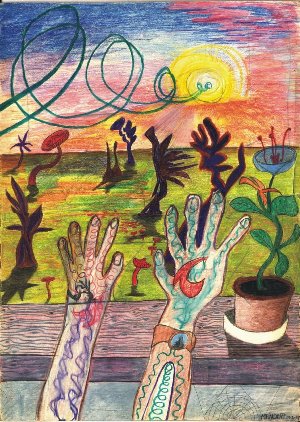are you DREAMING?
![]()
|
|
|||
|
Introduction: Whereas in the west the
subject of dreaming is generally not considered to be of great importance, this
has been very different in the old cultures of the east, as well as in many
other cultures. We have first started to take a serious look at dreaming
after Freud propagated his ideas on the unconscious. But still, our viewpoint is
mostly very mechanistic and limited. Western psychology is a very bleak and hazy
reflection of the wisdom and knowledge that has been preserved in the ancient
traditions of, for instance, Tibet and India. But our approach to Knowledge and
our ways of knowing will not let us step out of certain preconceived boundaries
that we are usually not even aware of. Of course there have been a number of
exceptions in western culture. Among these are the two persons that are named on
this page in connection with their pioneering work on dreaming. This is one of the subjects in life that have fascinated me from a very early age. I would like to introduce new visitors to this highly interesting realm. One of the common mistakes that are made by people who are
unacquainted with the subject is the fact that they think that people who are interested and involved
in the study of dreams must necessarily be silly, unrealistic and not wholly mature, even not of this world. One of the claims that I would like to put forward and defend is that the subject of dreaming has relevance to all parts of daily life and, what is more, that an inquiry into the nature of
dreaming can sheds light on the nature of what we call our common day reality. Thus I
am convinced that the study and development of dreaming can have enormous benefits in the field of education and mental health (amongst others).
Actually, I would like to argue that
it should be a regular part of the education of children and young people
everywhere.
Another pioneer of dream research was the French Marquis d'Hervey-Saint Denys. In 1867, his book entitled "Les RÍves et les Moyens de les Diriger - Observations Pratiques " (transl.: Dreams and the Ways to Direct Them; Practical Observations) was published. Few rare copies remain today. With its publication, for the first time in Western history, a detailed personal report on lucid dreaming over a 32-year period was available. Among other things, in this book, Saint-Denys describes his interest in dreams from the age of thirteen, how he developed lucidity in them, and how he partially mastered the direction of his dreams. Almost every classic book on lucid dreams refers to Saint-Denys' work. Although we may consider the author of Les RÍves the father of modern lucid dream research, very little information about the book or its author has been available. Since a few years, new research has started on its origin. Hopefully a new and full translation of the original will become available.
Illustration from "Les RÍves et les Moyens de les Diriger - Observations Pratiques ": a drawing by d'Hervey-Saint Denys himself.
|

Frederik van Eeden
|
||
I
started systematically recording my dreams and studying the subject from the age
of sixteen. Although my interest has been fluctuating on and off I can say that
this has been a source of inspiration, creativity and self-knowledge. Here you
can see a drawing based on one of my dreams from 1979.
|
 |
|
|
||||||||||||
|
||||||||||||